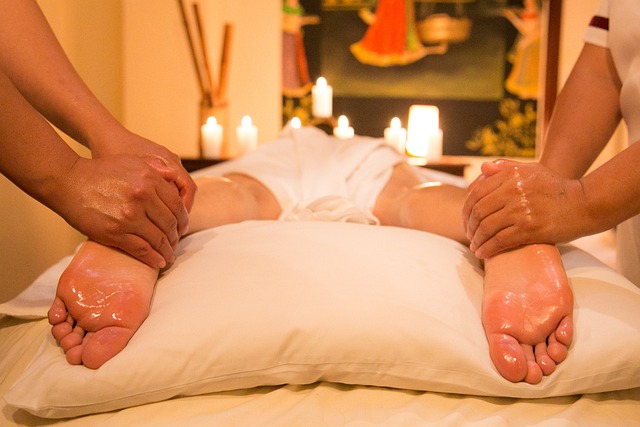In Maryland, a robust legal framework regulates massage therapy, with the Board of Massage Therapy setting licensing requirements and ensuring ethical practices. Massage therapists in Baltimore are bound by a duty of care, and clients have rights if harmed due to negligence or misconduct. Recognizing and reporting abuse is crucial, as therapists face legal repercussions for unethical behavior. Drug use carries severe consequences, and victims can seek compensation with the help of massage abuse attorneys in Maryland. Baltimore proactively addresses issues through educational programs, support services, and industry collaborations, prioritizing client safety and professional standards.
In Baltimore, as in many cities, the rise of massage therapy has brought both relaxation and concerns regarding client safety. This article delves into the legal implications surrounding massage therapist drug use and client abuse, exploring critical issues faced by practitioners and victims alike. We analyze Maryland’s regulatory framework, the duty of care therapists owe clients, and legal obligations for recognizing and reporting abuse. Additionally, we examine the impact of drug use on therapeutic practices and the city’s response through resources and support mechanisms, emphasizing the role of massage abuse attorneys in Maryland.
Understanding the Legal Framework in Maryland: A Look at Massage Therapy Regulations

In Maryland, the legal framework surrounding massage therapy is governed by strict regulations designed to protect both therapists and clients from abuse and mismanagement. The state’s Board of Massage Therapy regulates the industry, setting standards for licensing, training, and ethics. All massage therapists in Maryland must obtain a license from the board, which involves completing an approved training program and passing a comprehensive exam. This regulatory framework is crucial in mitigating potential risks associated with drug use and client abuse within the massage therapy profession.
The regulations not only ensure that practitioners adhere to ethical standards but also provide a legal foundation for addressing misconduct. Massage abuse attorneys in Maryland play a vital role in navigating this complex landscape, assisting clients who have suffered harm due to therapists’ negligence or criminal behavior. By understanding the intricate web of laws and regulations, these attorneys can offer guidance and representation to those affected by massage therapy-related abuse, ensuring justice and accountability.
The Duty of Care: Responsibilities of Massage Therapists Towards Clients

Massage therapists in Baltimore owe their clients a duty of care, which is a legal obligation to act with reasonable skill and care. This includes taking precautions to prevent harm during the massage session. When it comes to drug use and client abuse, this duty becomes even more critical. Therapists must ensure they are fit to practice, free from substance influence that could impair their abilities, and maintain professional boundaries at all times.
Maryland law holds healthcare professionals to high standards, and massage therapists are no exception. Failure to uphold this duty of care can result in legal implications for massage abuse attorneys. Clients who have experienced harm due to a therapist’s negligence or intentional misconduct may seek compensation through personal injury lawsuits. Such cases often involve complex legal arguments regarding consent, professional standards, and the specific circumstances surrounding the alleged abuse.
Recognizing and Reporting Massage Abuse: Legal Obligations and Consequences

Recognizing and reporting massage abuse is a critical step in safeguarding clients from potential harm. If a client experiences any form of abuse, manipulation, or exploitation during a massage therapy session, it is essential to understand that such actions are not only unethical but also illegal. Massage therapists in Maryland are bound by state laws and professional codes of conduct that outline their responsibilities towards clients.
In the event of suspected massage abuse, clients and concerned individuals should promptly contact local law enforcement or seek assistance from reputable massage abuse attorneys in Maryland. These professionals can guide victims through the legal process, ensuring their rights are protected. Consequences for therapists found guilty of abuse can include licensing revocation, civil lawsuits, and even criminal charges, leading to significant repercussions for their careers and personal lives.
Drug Use by Massage Therapists: Potential Legal Ramifications and Client Rights

Drug use by massage therapists in Baltimore, Maryland, carries significant legal implications, particularly when it involves client abuse or exploitation. If a therapist is found to have used drugs while providing services, they may face criminal charges, including but not limited to, drug possession and distribution, depending on the nature and extent of their substance abuse. These legal ramifications can lead to severe consequences, such as loss of license, fines, and even imprisonment.
Clients who have experienced massage therapy-related abuse or addiction due to a therapist’s drug use have specific rights. They may seek legal recourse through massage abuse attorneys in Maryland to hold the responsible parties accountable. This could involve civil lawsuits for negligence, medical malpractice, or personal injury, seeking compensation for physical and psychological damages. Protecting clients’ rights is paramount, ensuring that therapists maintain professional standards and do not compromise client safety due to drug use.
Baltimore's Response: Resources, Prevention, and Support for Massage Therapy Industry

In response to growing concerns about massage therapist drug use and client abuse, Baltimore has taken significant steps to address these issues within its thriving massage therapy industry. The city recognizes the importance of providing resources, prevention strategies, and support systems tailored to this specialized sector. Local authorities have collaborated with massage therapy associations and wellness centers to develop educational programs aimed at raising awareness about ethical practices, consent, and professional boundaries. These initiatives focus on empowering both therapists and clients, ensuring a safe and respectful environment.
Additionally, Baltimore offers various support services for victims of massage abuse, including counseling and legal assistance from experienced massage abuse attorneys in Maryland. The city’s proactive approach includes regular workshops and seminars conducted by experts in the field, who provide practical insights on recognizing and reporting suspicious activities. Such measures demonstrate Baltimore’s commitment to upholding high standards within the industry while safeguarding clients’ well-being.





